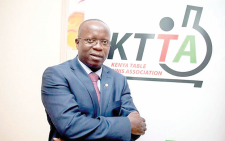Court extends eCitizen’s injunction to April 17

A judge yesterday extended orders blocking the government’s directive for parents to pay school fees for their children through the eCitizen platform until April 17,2024.
High court Judge Chacha Mwita extended the conservatory orders suspending a circular by Education Principal Secretary Belio Kipsang directing parents of students in national schools to pay fees through the e-Citizen platform pending the hearing of a case by a Nakuru doctor Magare Gikenyi saying the state will suffer no prejudice.
The judge also allowed the Law Society of Kenya (LSK) and Kenya Union of Post Primary Education Teachers (KUPPET) to participate in the case and enjoined them as interested parties.
Justice Mwita extended its orders issued on Wednesday February 7, 2024 after Gikenyi moved to court challenging the government initiative to pay for all services through the eCitizen platform.
In his petition, the doctor wants the recently introduced initiative quashed saying that it is illegal and has violated the principles of good governance.
Gikenyi argued that the programme was done without any public participation, adding that the convenience fee of Sh 50 per transaction was “arrived at capriciously, whimsically and without any iota of public participation.”
“The said transaction fee was also irrational, absurd and assumed a lot of issues. For example an Egerton University student Taking Lunch of “Ugali+sukuma wiki” costing Sh 30 has to be forced to part with Sh50 as transaction fee(Total 30+50=80) totaling Sh80. Which is totally unacceptable and irrational administrative action to say the least?” He says.
University of Nairobi (UoN) students and staff had also been directed last week that they will be required to make payments through the eCitizen platform to get meals from the university kitchens.
According to him, parents in rural areas who had been accustomed to paying school fees via non-monetary means (trading maize and beans to the school) will be “locked out through this unfair administrative action”.








